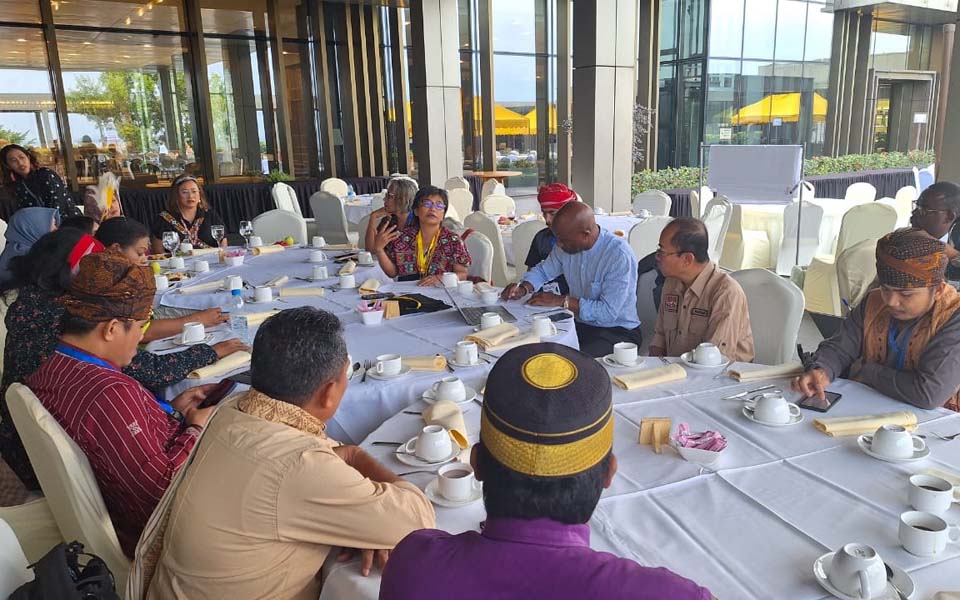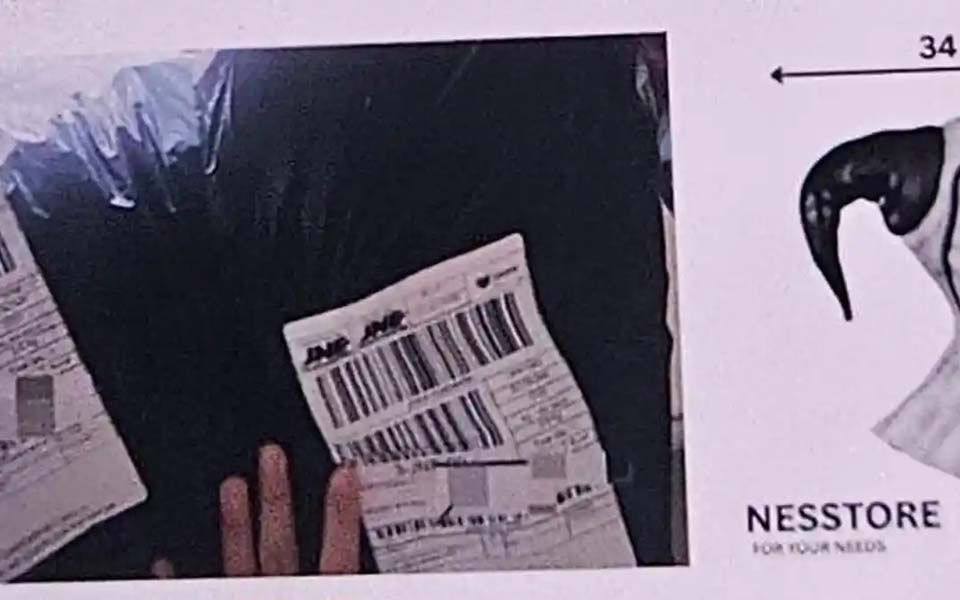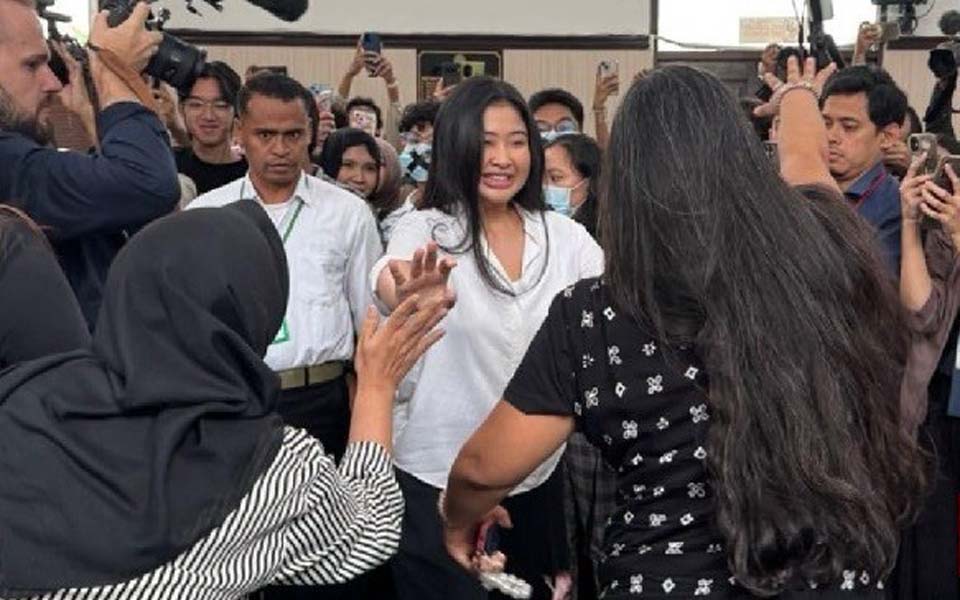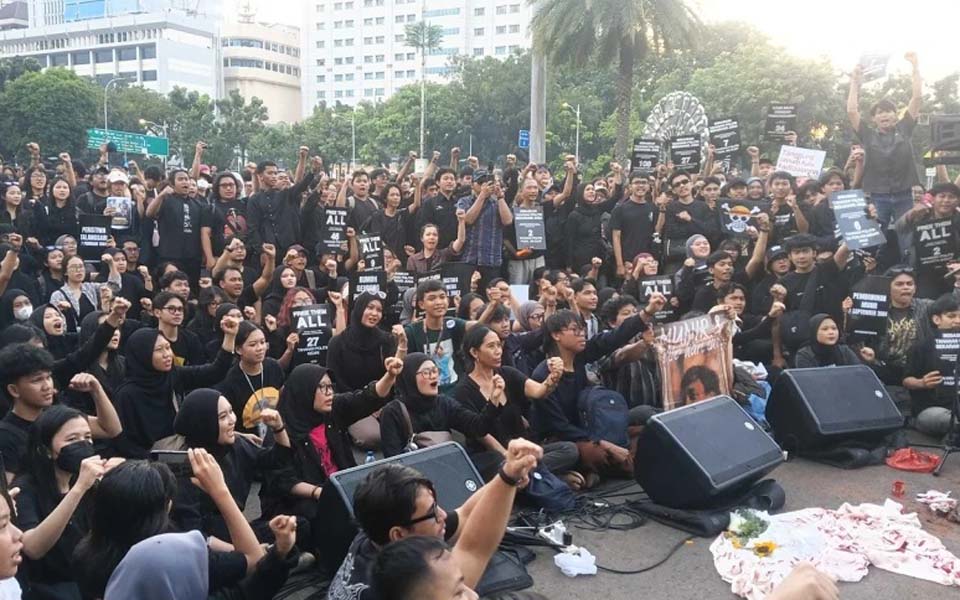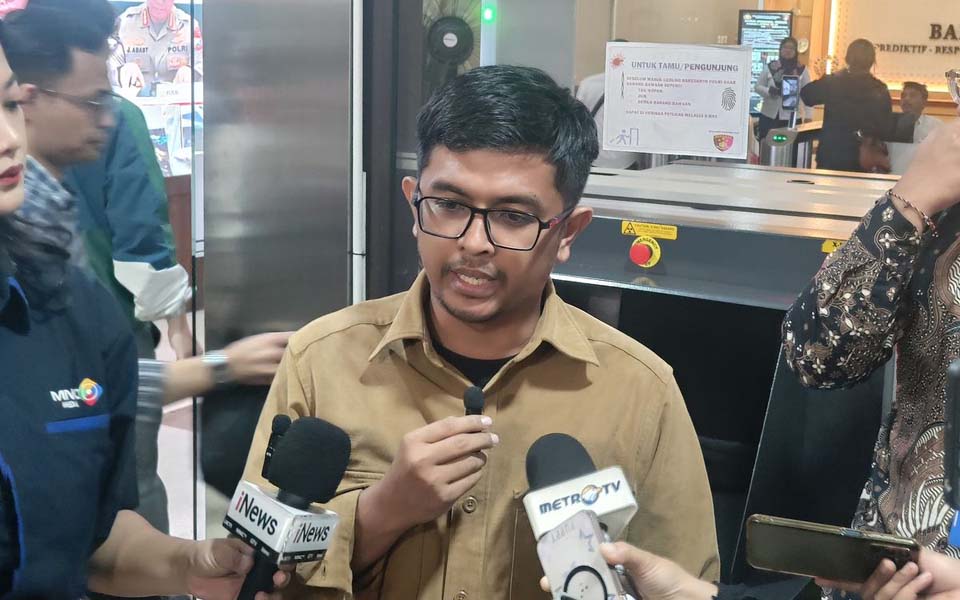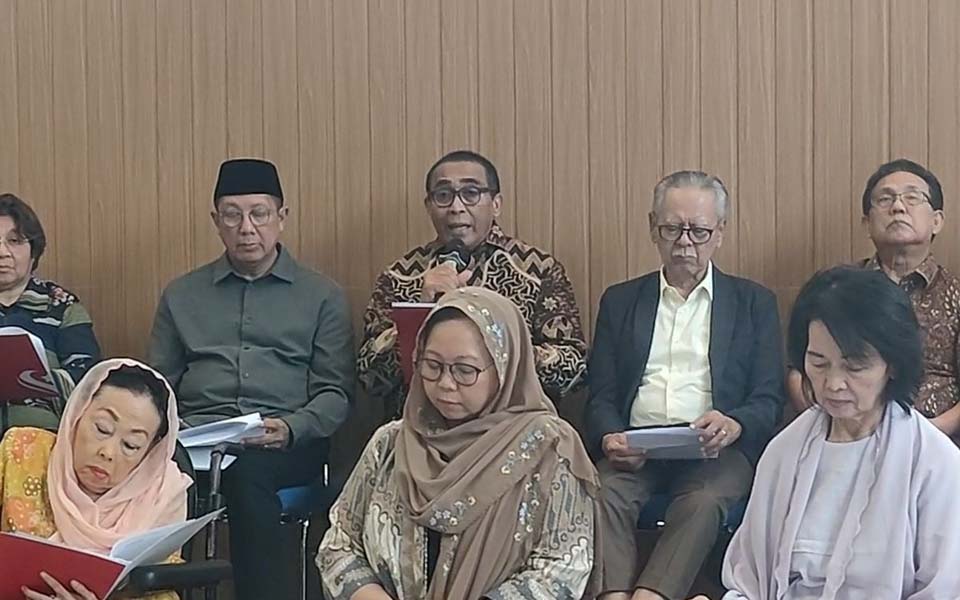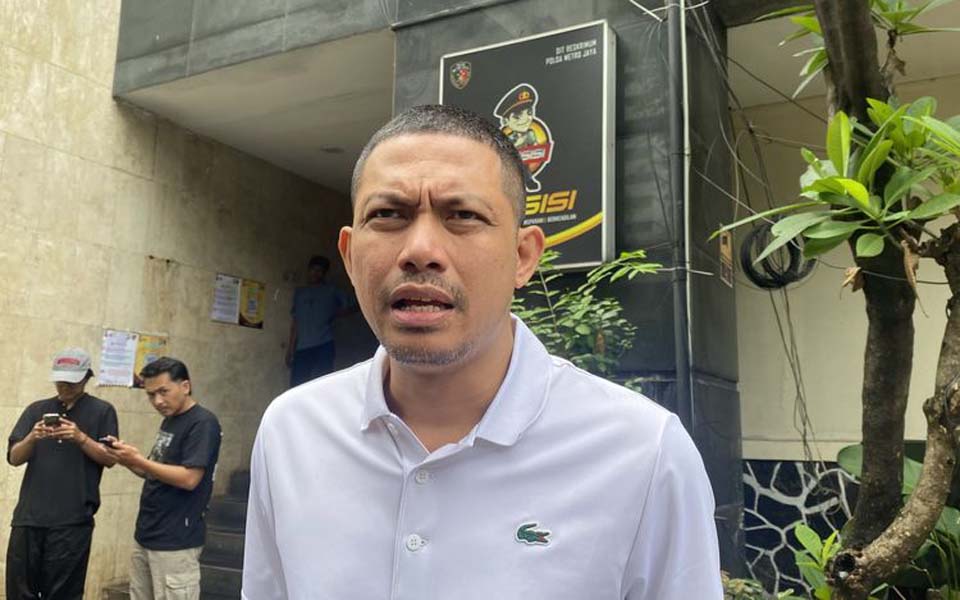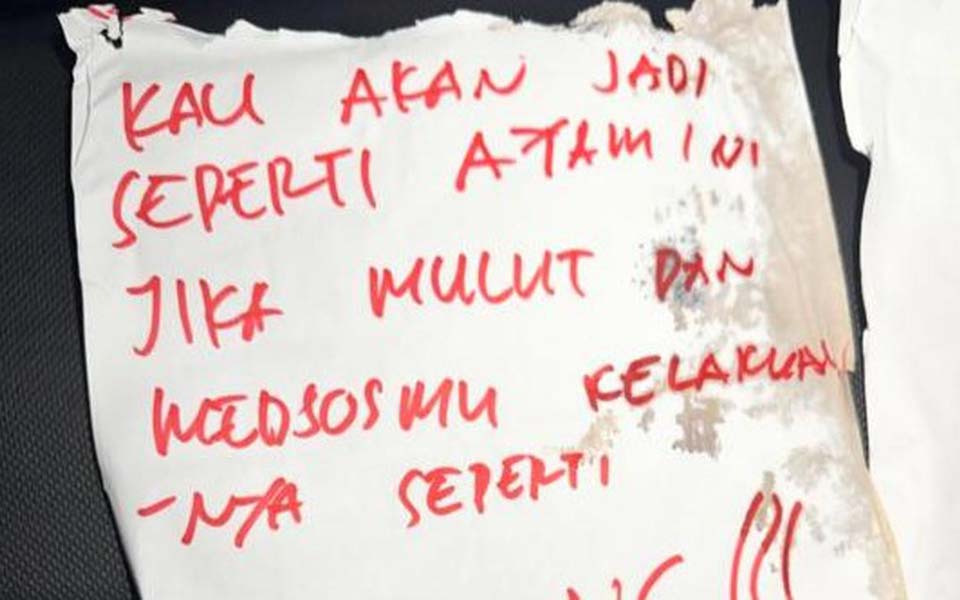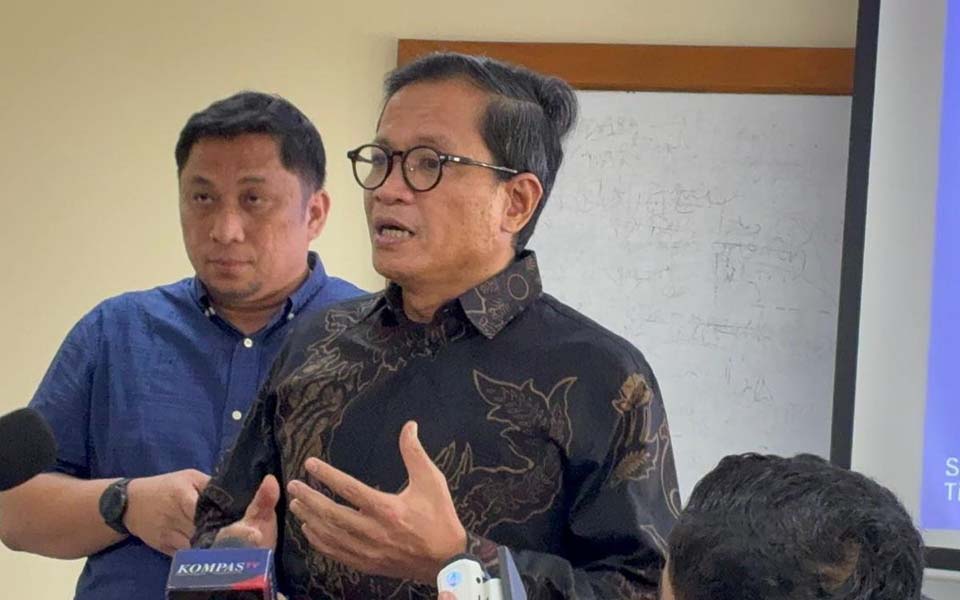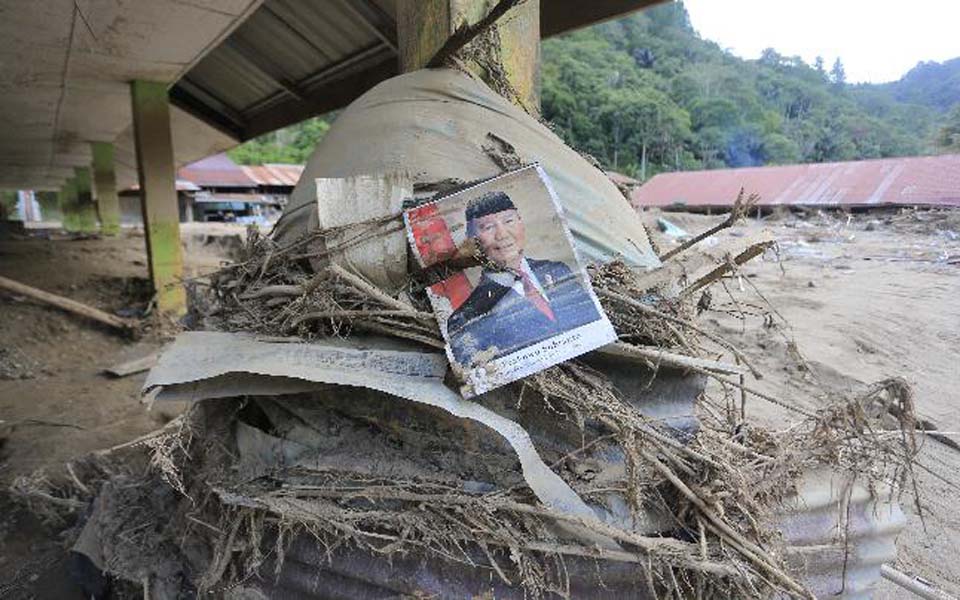Sorong – The Nusantara Indigenous Community Alliance (AMAN) together with a number of representatives of indigenous peoples from various parts of Indonesia have reported cases of criminalisation, intimidation and the seizure of indigenous territories directly to Dr. Albert K. Barume, the United Nations (UN) Special Rapporteur on the rights of indigenous peoples.
A number of cases of criminalisation and violence against indigenous peoples in Kalimantan, Tano Batak, Maluku and Papua as well as other regions that have been committed by the government, investors and security forces were reported to Barume.
The reporting, led by AMAN Secretary General Rukka Sombolinggi took place during an informal meeting on the sidelines of the First Global Congress of Indigenous Peoples and Local Communities from the Forest Basins in Brazzaville, Republic of Congo, on May 26-30.
Sombolinggi stated that violence against indigenous peoples was not a series of isolated incidents, but rather part of a systematic and structured pattern that continues to recur in various regions.
"There is a very distinctive pattern, namely intimidation, criminalisation, prohibitions on reporting, prohibitions on wearing traditional journalist attributes, to surveillance of activists' homes and families", she said in a press release received by Suara Papua on Sunday June 1.
Sombolinggi said one of the most worrying things about this pattern is the strategy of the state and corporations to criminalise traditional leaders, both legally, politically and symbolically. According to Sombolinggi, the target is not just the community, but the source of its spirit, namely its traditional leaders.
"They're not killing the movement directly, but silencing its source of strength, namely its traditional leaders. If the leaders are criminalised, the community will be afraid. If the community is afraid, the struggle is paralysed", she said.
The AMAN secretary general noted that this approach is not a coincidence, but rather a systematic strategy that had been going on for a long time and is targeted in a planned manner at figures that are considered to be symbols or the heart of the community's resistance.
"The criminalisation of traditional leaders is a strategy of the state and corporations. It's not by chance, but a form of organised attack on the heart of the community's resistance", continued Sombolinggi.
Papua: Armed forces evict indigenous people
Dorince Mehue, AMAN National Council (DAMANNas) chairperson for the Papua region, described the dire situation in the villages. She reported to the UN Special Rapporteur how the permanent presence of the armed forces has forced indigenous people to abandon their homes and villages.
"Indigenous people can no longer farm, they can no longer find food, children can no longer go to school, and indigenous women are the first victims", Mehue said.
This threat has not just started happening yesterday, but has been going on for years and years. Mehue claimed that people are living in fear. Therefore, she is asking for the world to pay attention.
"We're asking the UN Special Rapporteur to visit Papua personally, to see for themselves how indigenous people live in fear in their own traditional territories", she requested.
South Kalimantan: Conservation becomes cover to evict indigenous people
Similar to the indigenous people in Papua, the fate of indigenous people in South Kalimantan was also reported by Rubi Juhu, the managing chairperson of AMAN for the South Kalimantan region.
Juhu said the conservation claims touted by the state actually removed the indigenous people of the Meratus Mountains from their customary territory and that indigenous communities were never involved in the process of determining the conservation area.
"We were not only not involved, but we are also criminalised when we are in our own customary territory", he said, giving an example of an indigenous community being summoned by the police just because they were passing through their customary land.
"Conservation in South Kalimantan has become a cover for evictions and restrictions on the living space of indigenous communities", said Juhu.
Tano Batak: Traditional leaders become targets of criminalisation
Jhontoni Tarihoran, the managing chairperson of AMAN for the Tano Batak region, who was present at the meeting, also reported a case of the arrest of traditional leaders to the UN Special Rapporteur.
Tarihoran said two traditional leaders in Tano Batak, John and Tony, were arrested for defending their traditional territory. According to Tarihoran, the arrests were not only a violation of the law, but part of a strategy to silence resistance.
"The state knows who to arrest to cripple indigenous communities. They always target indigenous leaders who are the backbone of the resistance", he said.
North Maluku: Surrounded by mines
Afrida Erna Ngato from the Maluku regional AMAN National Council used the occasion to report to the UN Special Rapporteur that she was facing direct threats of criminalisation. She claimed that she had received a Notification of Commencement of Criminal Investigation (SPDP) and was being hunted by the police.
"I have been summoned twice, and if I do not appear, I will be arrested immediately. Currently I am taking refuge in Jakarta, unable to return to my village because of the threats", she said.
Ngato said that mining companies are collaborating with the Sultanate to weaken its customary legitimacy.
"I have a voice recording of the company leader stating that I have no right to lead rituals because I am not a tribal chief, according to the Sultanate's version", she explained.
Ngato also revealed that the company has taken control of around 29,200 hectares of indigenous territory, with various violations against local workers' rights. She, her husband and children are ready to face the legal process. But she is worried that this criminalisation will be used as a tool to intimidate other indigenous communities.
"I'm worried that my case is being used as an example to silence resistance. North Maluku is a small island cluster that is now surrounded by mines in 10 districts and cities", said Ngato.
Ngato said that every day she receives many reports about the expansion of gold and nickel mines. This mining activity clearly expands the threat to indigenous communities, including the Ohonga Namanyawang tribe and other indigenous communities.
"I hope the Special Rapporteur can help articulate that North Maluku must be returned to being a spice island, not a mining island", she requested.
UN Special Rapporteur's response
Responding to all the AMAN reports, Barume claimed that he was very open to and will respond to the complaints of criminalisation suffered by indigenous peoples in Indonesia.
Barume also stated that he was ready to facilitate a UN allegations letter mechanism to the Indonesian government.
[Translated by James Balowski. The original title of the article was "AMAN Laporkan Kasus Kriminalisasi Masyarakat Adat di Indonesia, PBB Diminta Kunjungi Papua".]





